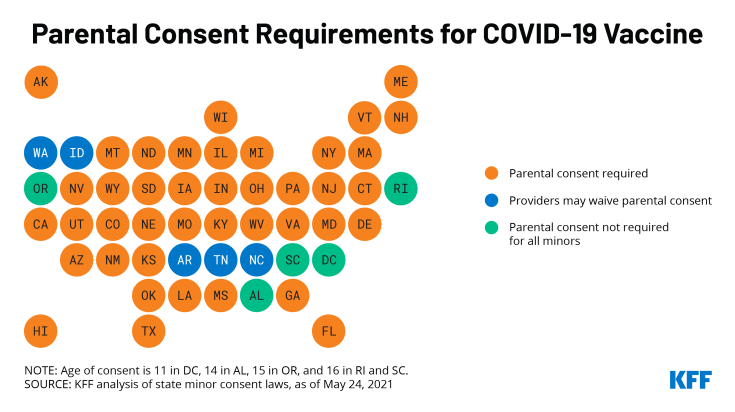A Look at Parental Consent and COVID-19 Vaccination for Adolescents
COVID-19 vaccine distribution has begun for adolescents ages 12 to 15 (and is ongoing for those ages 16 to 17), and authorization of a vaccine for even younger children is expected by this fall. This has focused attention on the role of parents and parental consent for vaccination, especially since most parents are not yet ready to get their children vaccinated. To better understand the landscape of parental consent laws, KFF assessed which states have such laws, for what ages, and where exceptions for COVID-19 vaccination have been made.
As shown in the map below, most states (41) require parental consent for vaccination of minors below the age of 18, although one of these states (NE) requires consent below age 19. In 5 states, a minor’s ability to self-consent is based on a specific age below 18 (RI, SC, OR, AL, DC). The remaining 5 states apply the “mature minor doctrine”, meaning that there is no specific age cut-off but providers have discretion to decide if a minor possesses the maturity to consent for themselves (AR, ID, NC, TN, WA). For more details on how these laws vary by state and the important role they will play in increasing vaccinations among young people, please visit kff.org.

